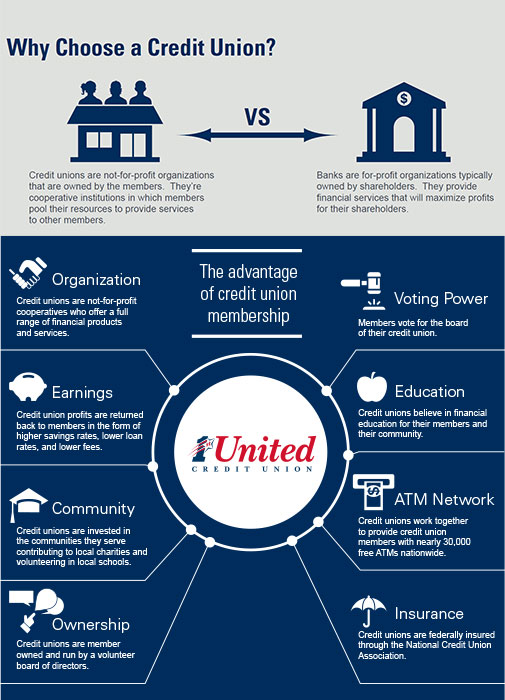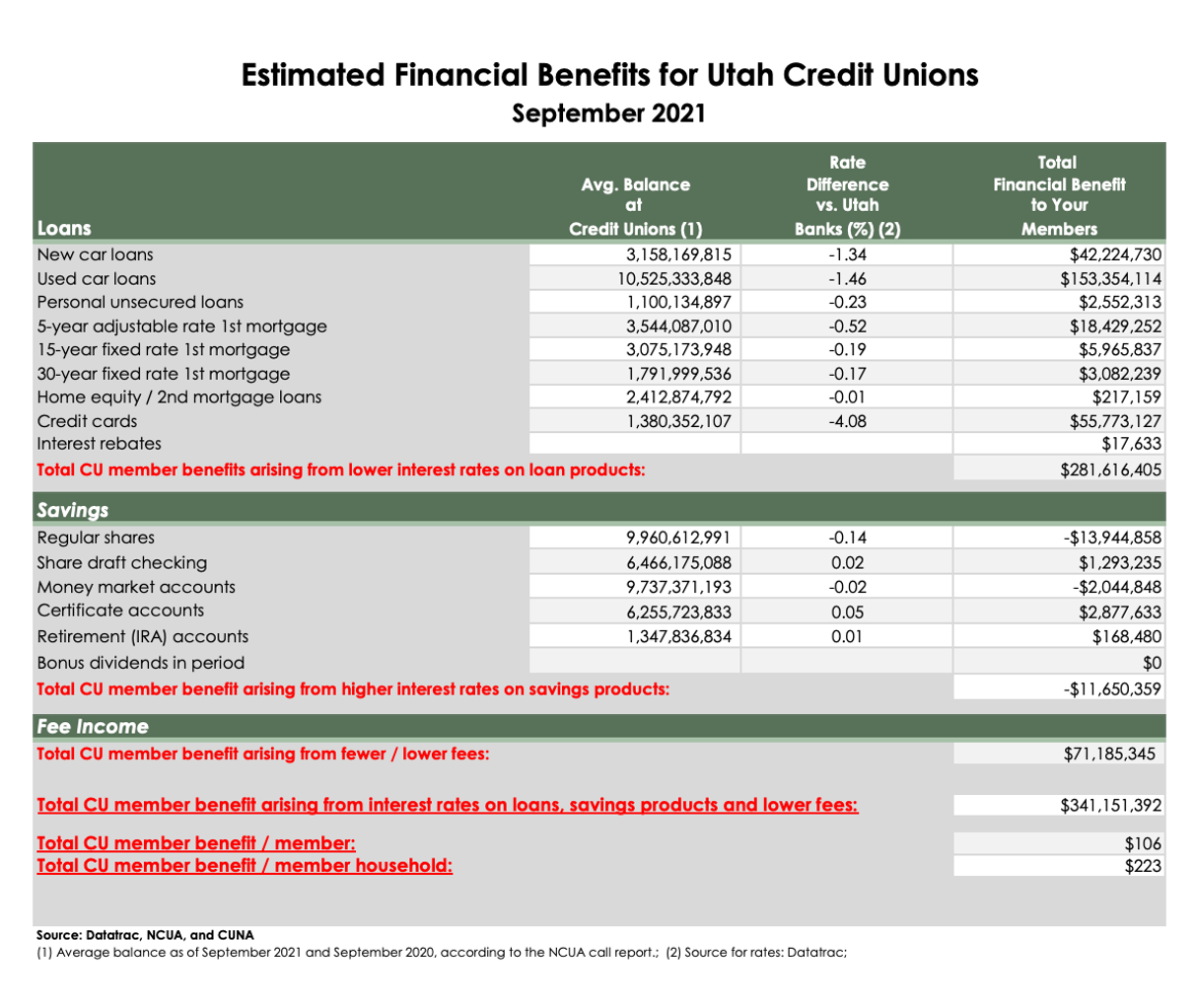Federal Credit Union: Top Quality Financial Providers and Support in Wyoming
Federal Credit Union: Top Quality Financial Providers and Support in Wyoming
Blog Article
The Ultimate Overview to Recognizing Credit Scores Unions

Cooperative credit union stand as distinct financial entities, rooted in concepts of shared support and member-driven operations. However, beyond their fundamental worths, recognizing the detailed workings of debt unions includes a deeper expedition. Untangling the complexities of subscription qualification, the evolution of services supplied, and the unique advantages they bring needs an extensive assessment. As we navigate through the complexities of cooperative credit union, an informative journey awaits to drop light on these member-focused organizations and how they vary from traditional banks.
What Are Cooperative Credit Union?
Credit scores unions are member-owned banks that provide a variety of financial solutions to their participants. Unlike conventional banks, cooperative credit union operate as not-for-profit organizations, implying their key emphasis gets on offering their members instead of taking full advantage of earnings. Participants of a cooperative credit union commonly share an usual bond, such as benefiting the very same employer, coming from the same area, or belonging to the same company.
One of the crucial benefits of lending institution is that they usually use higher rates of interest on interest-bearing accounts and lower rate of interest rates on finances compared to financial institutions. Hybrid Line of Credit. This is since cooperative credit union are structured to benefit their members straight, allowing them to hand down their incomes in the kind of much better rates and less costs. Furthermore, lending institution are known for their individualized customer support, as they focus on developing connections with their participants to recognize their unique monetary requirements and goals
History and Development of Cooperative Credit Union
The origins of member-owned monetary cooperatives, recognized today as credit unions, trace back to a time when communities sought options to typical banking organizations. The concept of credit history unions come from the 19th century in Europe, with Friedrich Wilhelm Raiffeisen usually credited as the leader of the cooperative banking activity. Raiffeisen founded the very first acknowledged cooperative credit union in Germany in the mid-1800s, stressing community assistance and self-help concepts.
The development of cooperative credit union continued in North America, where Alphonse Desjardins developed the first cooperative credit union in Canada in 1900. Soon after, in 1909, the very first U.S. lending institution was developed in New Hampshire by a group of Franco-American immigrants. These early cooperative credit union operated on the essential concepts of common assistance, autonomous control, and participant possession.
Over time, lending institution have actually expanded in appeal worldwide as a result of their not-for-profit framework, emphasis on offering participants, and supplying competitive monetary items and services. Today, credit rating unions play a crucial duty in the monetary market, giving easily accessible and community-oriented banking options for companies and people alike.

Subscription and Eligibility Standards
Subscription at a credit score union is click now usually limited to individuals satisfying details qualification criteria based on the organization's founding principles and governing needs. Some credit report unions may just offer people that live or work in a certain area, while others might be customized to employees of a particular business or members of a particular association.
Furthermore, cooperative credit union are structured as not-for-profit organizations, implying that their primary objective is to serve their participants instead than produce revenues for shareholders. This emphasis on participant solution often converts into more tailored attention, lower charges, and affordable passion prices on lendings and cost savings accounts. By satisfying the eligibility criteria and becoming a participant of a cooperative credit union, people can access a series of economic services and products tailored to their particular needs.
Services and Products Supplied
One of the crucial elements that sets lending institution apart is the diverse variety of economic product and services they offer to their members. Lending institution commonly give traditional banking solutions such as cost savings and inspecting accounts, financings, and bank card. Participants can additionally profit from financial investment solutions, including pension and financial preparation assistance. Numerous lending institution provide competitive rates of interest on interest-bearing accounts and financings, as well as lower fees compared to traditional financial institutions.
Moreover, credit score unions frequently provide hassle-free online and mobile banking see alternatives for members to easily handle their financial resources. They may supply perks such as common branching, allowing members to access their accounts at other credit rating unions throughout the nation. Some lending institution additionally provide insurance coverage items like life, automobile, and home insurance coverage to help members shield their assets and loved ones.

Advantages of Financial With Lending Institution
When taking into consideration banks, checking out the benefits of banking with cooperative credit union reveals one-of-a-kind advantages for members looking for customized solution and affordable rates. One significant benefit of cooperative credit union is their concentrate on tailored client service. Unlike huge banks, lending institution are member-owned and focus on structure solid connections with their members. This means that credit report union staff commonly have a much deeper understanding of their members' financial needs and can offer tailored options to aid them accomplish their goals. Additionally, lending institution are known for supplying affordable rates of interest on financial savings and car loans accounts. Since they are not-for-profit organizations, lending institution can typically provide lower lending prices, higher savings rates, and reduced costs contrasted to standard financial institutions. This can result in considerable cost financial savings for participants gradually. Generally, banking with a credit report union can give a much more tailored, economical, and member-centric monetary experience.
Verdict
In conclusion, debt unions stand out as member-owned economic organizations that focus on offering their members over making best use of profits. With origins dating back to 19th century Europe, credit score unions comply with concepts of shared aid and participant ownership.
Credit report unions are member-owned economic organizations that offer a range of financial solutions to their members. The idea of credit unions originated in the 19th century in Europe, with Friedrich Wilhelm Raiffeisen typically attributed as the leader of the cooperative banking motion.The advancement of credit rating unions continued in North America, where Alphonse Desjardins developed the very first credit scores union in Canada in 1900. Credit unions commonly supply traditional banking services such as financial savings and examining accounts, finances, and credit score cards.When considering financial organizations, discovering the benefits of banking with debt unions discloses unique advantages for participants seeking personalized solution and competitive prices.
Report this page